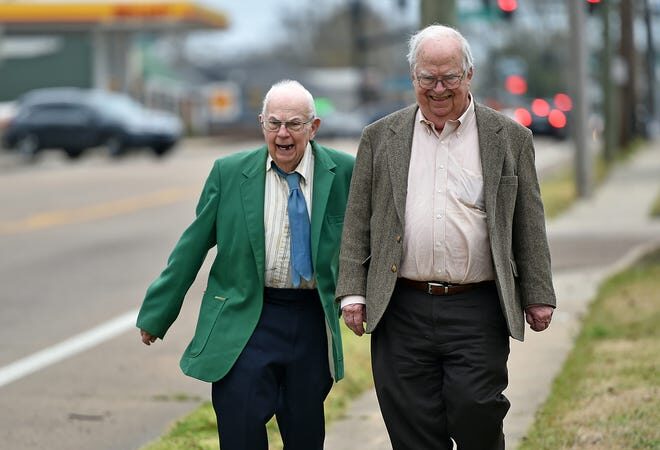
Donald Triplett, a Mississippi man who became known as the the first person to ever be diagnosed with autism, has died. He was 89 years old.
Triplett’s death on Thursday was confirmed in an obituary posted on Ott & Lee Funeral Home’s website in Forest, Mississippi, where Triplett lived. The obituary noted that Triplett died at his home after an extended illness.
Throughout his life, Triplett was featured in news articles, books, a PBS documentary and medical journals after he gained recognition as being the first person diagnosed with autism spectrum disorder.
The eldest son of an affluent Mississippi family, Triplett at an early age displayed challenges with social interactions and an uncanny knack for memorization, according to the Encyclopedia Britannica, which has an entry on him. Unsure of what to do, Triplett’s parents committed him to a state institution in 1937 before withdrawing him a year later, the entry states.

In 1938, Triplett was examined by Austrian child psychiatrist Leo Kanner at Johns Hopkins Hospital in Baltimore, who was initially baffled by the boy’s symptoms, according to the Encyclopedia Britannica.
Determined to find a diagnosis, Kanner saw Triplett several more times and by 1943 had seen 10 children with similar symptoms to Triplett. In his article “Autistic Disturbances of Affective Contact” published that year, Kanner referred to Triplett as Case 1 while outlining the basic symptoms of what later became known as autism, the encyclopedia’s entry states.
After attending college in Jackson, Mississippi — earning a bachelor’s degree in French from Millsaps College —Triplett returned to his hometown to work at the Bank of Forest founded by his family.
Triplett’s story was chronicled in a book, “In a Different Key: The Story of Autism,” which became the 2017 Pulitzer Prize finalist for general nonfiction. Written by journalists John Donvan and Caren Zucker, the New York Times bestseller gave rise to an award-winning documentary film with the same title premiering Dec. 13, 2022 on PBS.
Both the book and film tell the story of Donvan and Zucker’s search for Triplett and the bond they built with the man, all while considering what the future holds for their own loved ones and others who are on the spectrum.
In a Friday phone interview with USA TODAY, Donvan said he and Zucker first met Triplett in 2007 while working for ABC News — he as an on-air correspondent, she as a producer. The journalists remained in touch with Triplett throughout the years working on the book and later the film, but it wasn’t until Triplett assigned a numerical nickname to the pair — 550 for Donvan, 549 for Zucker — that Donvan knew their bond was cemented.
“With Donald, you kind of knew you broke through with him if he gave you a number,” Donvan said. “He means a lot to us.”
Donvan, who said he and Zucker were invited by the family to speak at Triplett’s funeral service on Monday, said the man became a beloved figure in his town, many of whom he said didn’t even seem to be aware of Triplett’s autism.
“They were stunningly accepting and appreciative and embracing for his lifetime, which goes on to this day,” Donvan. “Caren and I wanted to persuade the world that being different because you’re autistic isn’t that big of a deal and all of us should be open and accepting; Don’s story communicates how that can be done, but for that to happen he had to trust us, and we’re so grateful to him.”
Triplett’s renown across Mississippi was apparent on Friday, as news of his death sparked a handful of condolences from public figures and the Mississippi Bankers Association, which said on Facebook that “the banking industry in Mississippi lost someone near and dear to many hearts this week.”
Elected officials including Mississippi Sen. Tyler McCaughn and Mississippi Rep. Tom Miles also mourned Triplett’s death on Facebook, with Miles calling Triplett one of the “greatest friends and citizens” of Forest.
Eric Lagatta covers breaking and trending news for USA TODAY. Reach him at [email protected] and follow him on Twitter @EricLagatta.





